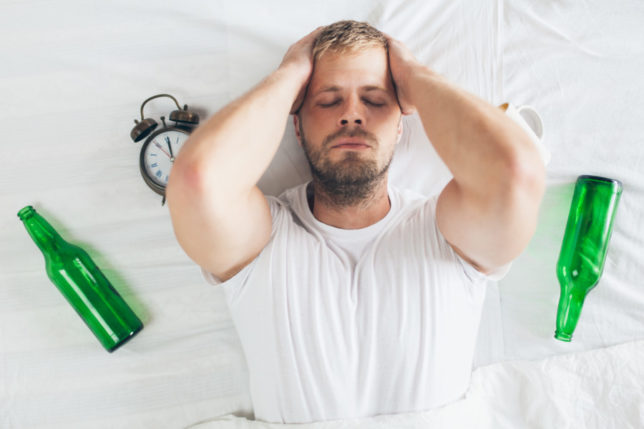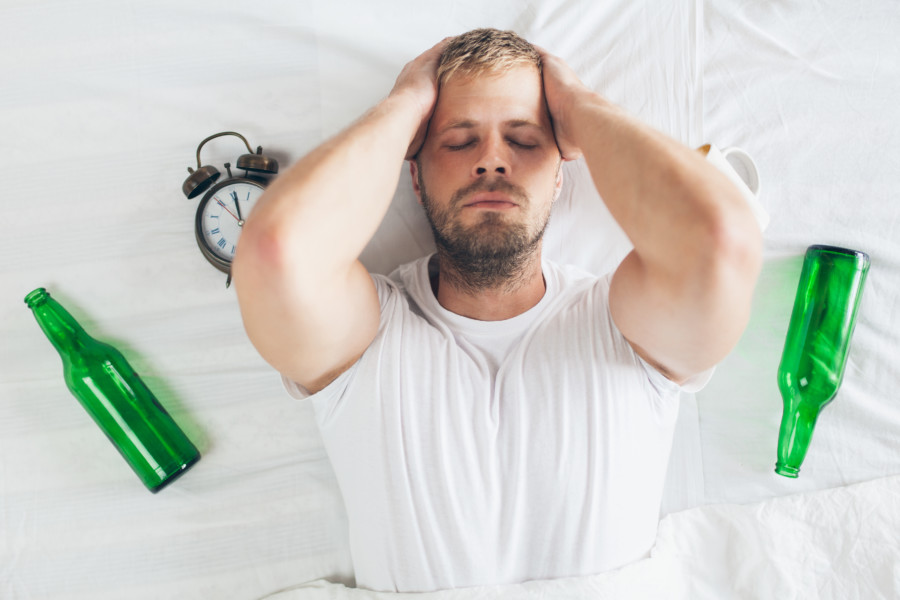Dr Elizabeth Kershaw-Yates, GP and one of the medical team at The Online Clinic, shares her thoughts on alcohol consumption with advice on how to know when your drinking has become a problem with tips on cutting down and what to do if you or your loved ones are worried about your drinking.

It’s estimated that around 3 million people die every year due to alcohol consumption, according to a World Health Organisation report in 2018 – that makes up 5% of all deaths! 24% of adults in England and Scotland regularly drink over the recommended amount, and 27% of people in the UK binge drink on their heaviest drinking days, according to leading UK alcohol charity Alcohol Change.
So, how much should you be drinking? The NHS advises that regularly drinking more than 14 units per week can be damaging to your health. 14 units is the same as 6 pints of average-strength beer or 10 small glasses of low-strength wine.
It’s always better to spread your drinking over 3 or more days, rather than binge drinking on just one or two. If you do drink 14 units per week, try to spread your drinking out over multiple days. Drinking dangers and the benefits of cutting down By regularly drinking more than 14 units a week, you risk developing illnesses later in life such as:
- Stroke
- Heart disease
- Liver disease
- Brain damage
- Damage to the nervous system
The less you drink, the lower the health risks. By cutting down your alcohol intake, you lower the chance of damaging your health.
Tips for cutting down
There are a few useful tips you can try to reduce the amount of alcohol you drink:
Set a limit on how much you are going to drink before you start drinking.
Keep a drink diary for or three to four weeks – note down every time you have a drink, including information about how much you drank and where you were. Compare your diary with your goal and if have trouble sticking to it, discuss this with your GP or another health professional.
Avoid your triggers – it’s a good idea to avoid situations in which you’re used to drinking. Certain activities, places and things can all be triggers that cause you to want to drink.
Let your friends and family know you are trying to cut down.
Alternate each alcoholic drink with something non-alcoholic such as a glass of water or a juice.
Swap your drinks for smaller sizes – have a bottle of beer instead of a pint, and a small glass of wine rather than a large one.
Set a budget on the amount of money you will spend on alcohol each week.
Take a break – have several alcohol-free days per week.
Treat yourself to a non-alcoholic drink such as a delicious mocktail.
When it might be time to seek help?
As alcohol consumption is so common, it can be difficult to recognise when you have a problem. Alcoholism is the most serious form of problem drinking, but even people who don’t necessarily suffer from an uncontrollable desire to drink should look out for warning signs, such as often getting into trouble because of your drinking, having other people warning you about your drinking or if you feel like your drinking is causing other problems in your life.
In cases where drinking has become an issue, it may be advisable to look at medication options that could help you control your alcohol intake. For example, Selincro contains the active ingredient nalmefene, which works by reducing the urge in the brain and making the sensation of drinking less enjoyable. However, your doctor will want to assess your level of alcohol dependence before prescribing any medication, so you will be asked to keep an alcohol diary and try other simple tips and support options.
As with all health issues, seeing a GP is a good place to start, and they can advise on the possible medications, counselling and help available.
About the expert
 Dr Elizabeth Kershaw-Yates, GP and one of the medical team at The Online Clinic (www.theonlineclinic.co.uk)
Dr Elizabeth Kershaw-Yates, GP and one of the medical team at The Online Clinic (www.theonlineclinic.co.uk)

